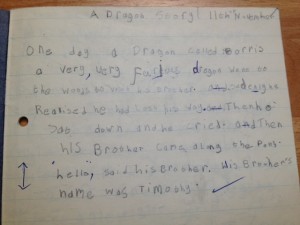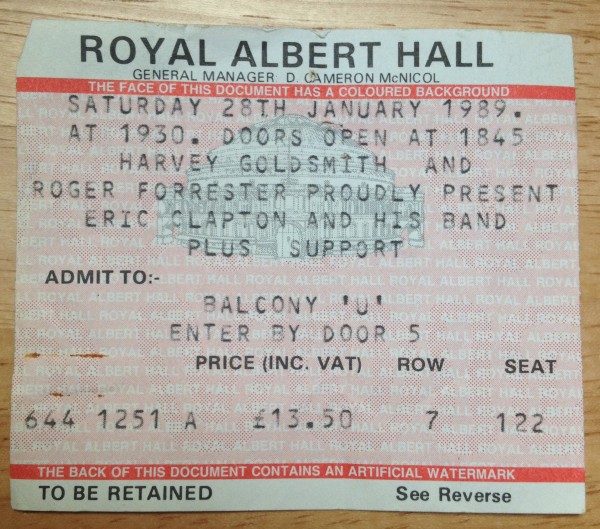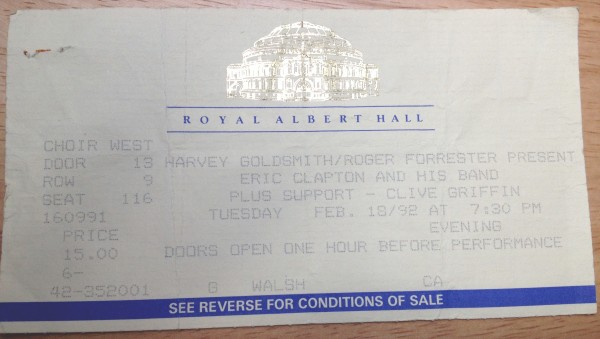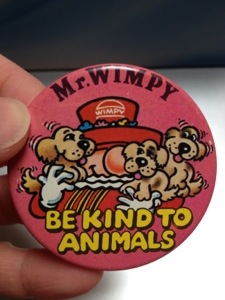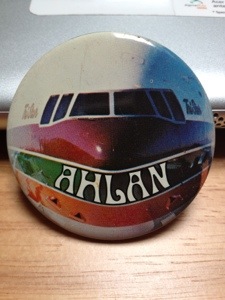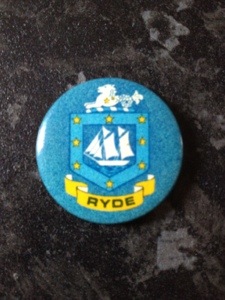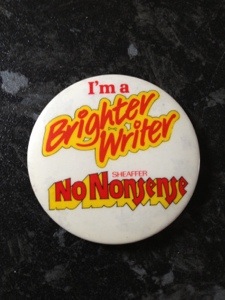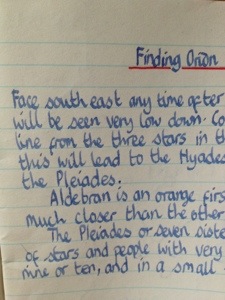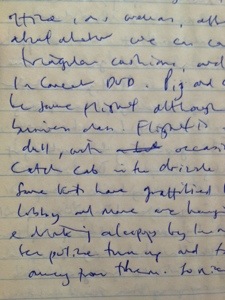To my surprise there didn’t seem to be any coverage of this judgment in the media that day, so I’m reproducing here the text of Mr Yip’s email, with some further comments of my own beneath.
I write further to our recent correspondence regarding your complaint against the Daily Mail.
As you will be aware, the Commission received a number of complaints under Clause 1 (Accuracy) of the Editors’ Code of Practice, in relation to two articles which were published following Michael Philpott’s conviction. These were investigated with two lead complainants, in accordance with the Commission’s normal procedures for the investigation of articles which are the subject of multiple complaints.
The investigation of these complaints has now concluded, and the Commission’s rulings have been issued to the parties. The Commission’s decisions, which found no breach of the Code, are set out below for your reference.
I would like to thank you for bringing your concerns to our attention.
With best wishes,
Simon Yip
Commission’s decision in the case of
A woman v Daily Mail
The Commission received a number of complaints in relation to this article. As such, a lead complainant was selected for the purposes of the Commission’s investigation, in accordance with its standard procedures. The complainant was concerned about a front page article which reported Michael Philpott’s conviction for manslaughter following the deaths of six of his children. She considered that, in failing to distinguish clearly between comment, conjecture and fact, the article had breached Clause 1 (Accuracy) of the Editors’ Code of Practice. In particular she was concerned about statements that Mr Philpott had “bred” his children “to milk the welfare state”, that Mr Philpott “embodies everything that is wrong with the welfare state” and the headline: “Vile Product of Welfare UK”. The complainant considered that this inaccurately suggested that the death of Mr Philpott’s children had been caused by the welfare state. She also considered that it was misleading for the article to have omitted statements from the trial that Mr Philpott viewed his children as a symbol of his own virility; she was of the view that this demonstrated that it was inaccurate to suggest that he viewed the children as a source of income. The complainant was further concerned that the article had not emphasised Mr Philpott’s history of domestic violence.
Clause 1(i) states that “the press must take care not to publish inaccurate, distorted or misleading information”; under Clause 1(iii) “the press, whilst free to be partisan, must distinguish clearly between comment, conjecture and fact”.
The newspaper said that the headline had referred to Mr Philpott, not his crime, as being the “vile product of welfare UK”. It said it recognised that this crime was uniquely horrific, and that it was not seeking to generalise from Mr Philpott to the millions of genuine benefits claimants in the UK. The suggestion that Mr Philpott viewed his children as “cash cows” had originally been made in court by the prosecuting barrister who said that “Michael Philpott did not want to work. He just wanted a house full of kids and the benefit money that brings.” The newspaper was of the view that the statement that Mr Philpott “embodies everything that is wrong with the welfare state” was clearly comment, and that its readers would have understood it as such.
Turning first to the complainant’s concerns about the headline, the Commission considered that, taken in the context of the article as a whole, this was an expression of the newspaper’s opinion of Mr Philpott’s character, rather than an assertion that the welfare state was responsible for his crime. In coming to this view, the Commission had particular regard for the fact that the three sub-headlines had referred explicitly to Mr Philpott, his guilt, previous history of violence, and “boasts” of a “sordid lifestyle” – as well as the fact that the article had commenced with a number of statements relating to Mr Philpott’s character, before turning to refer to the specifics of his crime. The headline was a subjective assessment of Mr Philpott in the light of his crimes; it was the newspaper’s opinion that he was “vile”. Consequently it was clear that this was not a statement of fact. As such the Commission did not consider that the newspaper had failed to clearly distinguish this as comment in breach of Clause 1(iii).
The statement that Mr Philpott “embodies everything that is wrong with the welfare state” was a metaphorical expression of the newspaper’s view that Mr Philpott personified its more general concerns about the welfare system. Such a view was clearly a matter of interpretation, and the Commission did not therefore consider that readers were being invited to treat it as a statement of fact. Similarly, the suggestion that Mr Philpott had treated his children as “cash cows” or had used them to “milk” the welfare state was an interpretation of his having funded a widely discussed lifestyle through benefits designed to support his children. The newspaper had been entitled to rely upon views expressed in open court in advancing its opinion on this point, and in doing so it had not presented these as statements of fact. In the light of this, the fact that the newspaper had not published alternative explanations for Mr Philpott’s having had a large number of children had not meant that the article was significantly misleading. Neither had the newspaper been obliged to focus upon his history of domestic violence, although the Commission noted that this was detailed in another article, published in the same edition of the newspaper. There was no breach of Clause 1.
The Commission noted the fact that many complainants had found this article, particularly the headline, deeply offensive; however, it made clear that the terms of the Editors’ Code of Practice do not address issues of taste and offence. The Code is designed to address the potentially competing rights of freedom of expression and other rights of individuals, such as privacy. Newspapers and magazines have editorial freedom to publish what they consider to be appropriate provided that the rights of individuals – enshrined in the terms of the Code which specifically defines and protects these rights – are not compromised. It could not, therefore, comment on this aspect of the complaint further.
Commission’s decision in the case of
A woman v Daily Mail
The Commission received a number of complaints in relation to this article. As such, a lead complainant was selected for the purposes of the Commission’s investigation, in accordance with its standard procedures. The complainant was concerned about an article which commented on the welfare state with reference to Michael Philpott’s conviction for manslaughter. She considered that this had contained inaccurate and misleading information, in breach of Clause 1 (Accuracy) of the Editors’ Code of Practice. The article, headlined “Michael Philpott is a perfect parable for our age: His story shows the pervasiveness of evil born out of welfare dependency”, was opinion piece which criticised what the columnist viewed as abuse of the welfare state highlighted by Mr Philpott’s trial, which the columnist considered to have “lifted the lid on the bleak and often grotesque world of the welfare benefit scroungers”.
The complainant had two general concerns about the accuracy of the article. Firstly, she considered that the article had inaccurately attributed responsibility for Mr Philpott’s crimes to the welfare state, or suggested that these crimes could be explained by the desire to claim benefits. In addition, the complainant was concerned that the article had misleadingly suggested that Mr Philpott and his family were representative of welfare claimants as a whole.
Clause 1(i) states that the press must take care not to publish inaccurate, misleading or distorted information”. Clause 1(iii) states that “the press, whilst free to be partisan, must distinguish clearly between comment, conjecture and fact”.
The Commission first turned to consider the complaint that the article suggested that Mr Philpott’s crimes were caused by the welfare state, and that this had constituted a breach of Clause 1. The complainant had identified a number of statements in the article which she considered to be of concern in this regard: that “the particular manner in which his nastiness was exercised, and the way in which he lived, was the direct consequence of his being able to live scot-free at the expense of the taxpayer”, that Philpott’s children were “killed not only by their father but also by the system which has been designed with the best intentions to help them but has now been corrupted seemingly beyond repair”, and that “what the Philpott trial showed was the pervasiveness of evil caused by benefit dependency”.
The newspaper explained that this was a comment piece, which had presented the columnist’s opinion that the lifestyle Mr Philpott enjoyed prior to his conviction constituted an abuse of the founding principles of the welfare state. For the most part, it was this lifestyle which the article drew attention to and criticised. The newspaper’s position was that, where the article had suggested that the “corruption” of the welfare state was connected to Mr Philpott’s crimes by supporting his lifestyle, this view was clearly distinguished as comment. The newspaper drew attention to statements made by the prosecution during Mr Philpott’s trial that “Mick Philpott did not want to work. He just wanted a house full of kids and the benefit money that brings”, and which furthermore identified the loss of £1000 a month in benefits as “the catalyst for everything which was to follow”, and in its view the opinion published was supported by these statements which had been made in open court.
The Commission acknowledged the fact that the complainant, like many of those who had contacted the PCC in relation to this article, disagreed with the articles suggestion that Mr Philpott’s crimes had some connection to the lifestyle he had led with financial support from the welfare state. However, it did not consider that, in suggesting this connection, the article had made a factual assertion that Mr Philpott’s crime was caused by the welfare state, or that the welfare state was responsible for his children’s death. The article was an opinion piece and, whilst the Commission acknowledged concerns expressed by many complainants about the manner in which these arguments were presented, it was satisfied that where a connection between Mr Philpott’s lifestyle and his crime was suggested, this was clearly distinguished as comment as opposed to fact. Indeed, in commenting on this connection the article’s author had concluded by stating that “it is a difficult matter to prove, but I know what I think”.
The complainant was also concerned that the article had suggested that Mr Philpott was representative of benefit claimants generally. She therefore considered that the article had misleadingly suggested that characteristics of Mr Philpott (particularly with regards to the horrific crimes he had committed) were shared by other individuals who were being supported by the welfare state. In particular, she was concerned by statements that “tens of thousands” of “welfare benefit scroungers” lived in the UK, and that “versions of the Philpott family can be found in any town in Britain”. She provided information to demonstrate that both the amount of benefits being claimed by Mr Philpott and his family, and the crimes which he committed, were exceptional. She therefore said that it was inaccurate to say that families like this could be found “in any town in Britain”.
The article presented the columnist’s opinion that the UK’s welfare system had grown disproportionately from its conception, and that this growth had led to individuals living lives supported by the welfare state which the columnist considered to be an abuse of that system. Michael Philpott was presented as an example of such an individual, as were a number of people who had featured in a BBC documentary series entitled “The Scheme”. Taking the article as a whole, the Commission was satisfied that the columnist had used the evidence disclosed at trial about Mr Philpott’s lifestyle to highlight his broader concerns about the welfare state. The article acknowledged the fact that Mr Philpott’s case was an extreme example, and the Commission did not consider that the article had suggested that his conduct was representative of welfare claimants as a whole. Whilst the Commission noted the complainant’s position that it was unclear which of Mr Philpott’s characteristics were being referred to in suggesting that these were widespread, it did not consider that this had resulted in the article being significantly inaccurate or misleading. The columnist’s view, that tens of thousands of welfare claimants were “scroungers” and his view that these individuals’ lifestyles constituted an abuse of the system, was clearly distinguished as an expression of his opinion. Whilst the Commission acknowledged the fact that, for many complainants, this opinion and the decision to use Mr Philpott’s case as an example in support of it was deeply offensive, the columnist was entitled to express his view so long as in doing so the article distinguished clearly between comment conjecture and fact. In the absence of a failure to comply with the terms of Clause 1(iii) there was no breach of the Code.
Simon Yip
Complaints Coordinator
Press Complaints Commission
I don’t think there are really many surprises here. Here are a few non-researched, non-academic thoughts of mine:
1) the Editors’ Code of Conduct may be designed to stop readers being misled, and perhaps it was clear that some claims were “comment” rather than statements of fact. That doesn’t mean that readers can’t be persuaded emotionally by a headline like “Vile product of welfare UK”.
2) “the headline … taken in the context of the article as a whole … was an expression of the newspaper’s opinion of Mr Philpott’s character, rather than an assertion that the welfare state was responsible for his crime.” Oh really? Coulda fooled me. Are we really that stupid?
3) “the terms of the Editors’ Code of Practice do not address issues of taste and offence”. No kidding.
4) “The Commission acknowledged the fact that the complainant … disagreed with the articles [sic] suggestion that Mr Philpott’s crimes had some connection to the lifestyle he had led with financial support from the welfare state. However, it did not consider that, in suggesting this connection, the article had made a factual assertion that Mr Philpott’s crime was caused by the welfare state, or that the welfare state was responsible for his children’s death. The article was an opinion piece.” Weasel words, surely?
5) “The columnist’s view, that tens of thousands of welfare claimants were ‘scroungers’ and his view that these individuals’ lifestyles constituted an abuse of the system, was clearly distinguished as an expression of his opinion.” This surely blurs a line between comment and fact: if you dress up prejudice in comment you don’t have to be accurate about numbers.
6) The PCC’s judgment was only in respect of one “typical” complaint because the poor things had so many complaints to wade through. The response I received did not comment on my complaints that the Mail’s reporting and so-called “comment” breached the Code on the grounds of harrassment, invasion of privacy, children, intrusion into grief or shock…
 I didn’t expect to be doing another of these (or in fact any ;-)) blog posts quite so soon, but, having had far too much fun with The Kraken Wakes’s top swears a couple of weeks ago, I couldn’t resist doing the same for GaiaTheorist. A bit of background: I started following Gaia in around December 2012 when either someone I was following retweeted something by her, or I just noticed their conversation – I can’t remember which – but the first tweet of hers I ever read contained the unforgettable outburst “badger-vajazzling fucknuts”. I actually can’t locate that precise tweet right now, and I fear the third word may have been “fuckcrumpets” or “cocktrumpets” or “bumgraters” or something else, even, but the “badger-vajazzling” element was definitely present. I was on a busy train heading home from an evening out at the time and I could barely contain myself, just sat there staring at this tweet in hilariated disbelief through watering eyes. My faith in humanity was reassured by the very existence of such inventiveness. I mean what sort of imagination comes up with the adjective “badger-vajazzling”? I started following Gaia immediately on the strength of it.
I didn’t expect to be doing another of these (or in fact any ;-)) blog posts quite so soon, but, having had far too much fun with The Kraken Wakes’s top swears a couple of weeks ago, I couldn’t resist doing the same for GaiaTheorist. A bit of background: I started following Gaia in around December 2012 when either someone I was following retweeted something by her, or I just noticed their conversation – I can’t remember which – but the first tweet of hers I ever read contained the unforgettable outburst “badger-vajazzling fucknuts”. I actually can’t locate that precise tweet right now, and I fear the third word may have been “fuckcrumpets” or “cocktrumpets” or “bumgraters” or something else, even, but the “badger-vajazzling” element was definitely present. I was on a busy train heading home from an evening out at the time and I could barely contain myself, just sat there staring at this tweet in hilariated disbelief through watering eyes. My faith in humanity was reassured by the very existence of such inventiveness. I mean what sort of imagination comes up with the adjective “badger-vajazzling”? I started following Gaia immediately on the strength of it. Happy new year! For my first post of 2014 I’d like to talk a bit about one of my favourite blogs,
Happy new year! For my first post of 2014 I’d like to talk a bit about one of my favourite blogs, 